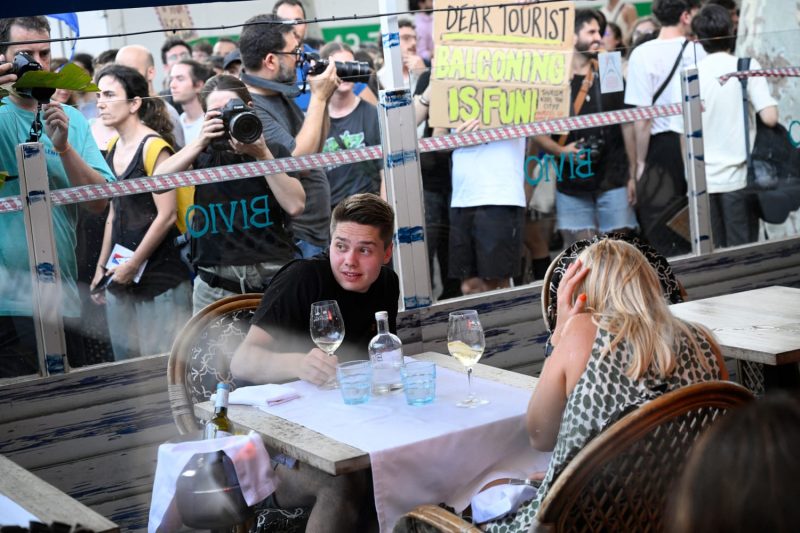In the heart of Barcelona – a city known for its unique blend of culture, history, and architecture – recent events have shed light on a growing tension between local residents and tourists. The peaceful coexistence between travelers and the local community has been disrupted by a series of protests where demonstrators have thrown items and sprayed travelers with water, shouting the slogan Tourists go home.
These protests have sparked debates about the impact of tourism on the city, highlighting the complex relationship between economic prosperity and the preservation of local identity. While tourism has undoubtedly brought significant economic benefits to Barcelona, with millions of tourists flocking to the city each year, it has also led to overcrowding, rising housing prices, and challenges in preserving the city’s unique character.
The demonstrations have become a symbolic expression of the frustrations felt by many Barcelona residents who perceive tourism as a threat to their way of life. As large numbers of tourists flood into popular neighborhoods, local businesses catering to the needs of residents are often replaced by souvenir shops and accommodation aimed at tourists. This transformation has led to concerns about the loss of local authenticity and the erosion of community ties.
Moreover, the rise of short-term rental platforms like Airbnb has exacerbated the housing crisis in Barcelona, with many locals struggling to find affordable accommodation in the face of rising rents driven by tourist demand. This has fueled resentment towards tourists, who are seen as contributing to the displacement of long-standing residents and the commodification of the city.
The protests are a stark reminder of the need for sustainable tourism practices that balance the economic benefits of tourism with the preservation of the local environment and community. Local authorities must work towards implementing policies that protect the interests of residents while ensuring that tourists can enjoy a memorable experience in Barcelona. This may involve regulating the number of visitors in popular areas, promoting responsible tourism practices, and investing in initiatives that support the local economy and culture.
Ultimately, the protests in Barcelona serve as a wake-up call for all stakeholders involved in the tourism industry to reflect on the impact of their actions and strive towards a more sustainable and inclusive approach to tourism. By fostering dialogue and collaboration between residents, businesses, and tourists, Barcelona can continue to thrive as a world-renowned destination while preserving the essence of what makes it a unique and vibrant city.
